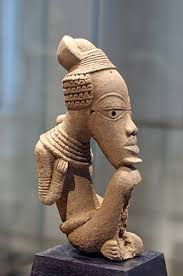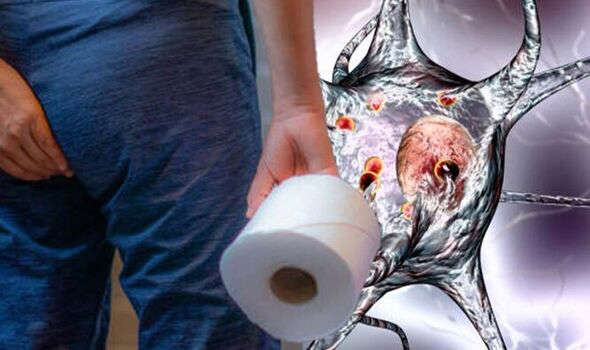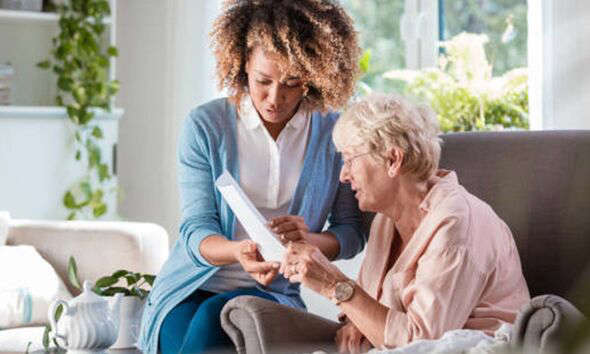Parkinson's disease: The problems with peeing associated with the condition














Parkinson's disease: The problems with peeing associated with the condition
The NHS says: "Parkinson's disease is a condition in which parts of the brain become progressively damaged over many years." It's thought around one in 500 people are affected by Parkinson's disease, with men being slightly more likely to get Parkinson's disease than women. The NHS says problems with peeing, such as having to get up frequently during the night to pee or unintentionally peeing is a sign.
The health body says that the three main symptoms of Parkinson's disease affect physical movement, and include:
- Tremor - shaking, which usually begins in the hand or arm and is more likely to occur when the limb is relaxed and resting
- Slowness of movement (bradykinesia) - physical movements are much slower than normal, which can make everyday tasks difficult and result in a distinctive slow, shuffling walk with very small steps
- Muscle stiffness (rigidity) - stiffness and tension in the muscles, which can make it difficult to move around and make facial expressions, and can result in painful muscle cramps (dystonia).
"These main symptoms are sometimes referred to by doctors as parkinsonism as there can be causes other than Parkinson's disease," it explains.
GETTY toilet roll
The NHS continues: "See your GP if you're concerned you may have symptoms of Parkinson's disease.
"Your GP will ask about your symptoms and your medical history to help them decide whether it's necessary to refer you to a specialist for further tests."
The Parkinson's Foundation notes that some symptoms, such as loss of smell, constipation, depression and REM sleep behaviour disorder "can occur years before the diagnosis".
Although there is currently no cure for Parkinson's disease, early diagnosis is important so patients can receive the proper treatment and advice regarding care.
The NHS notes: "Most people with Parkinson's start to develop symptoms when they're over 50, although around one in 20 people with the condition first experience symptoms when they're under 40."
Researchers do not yet know exactly why people get Parkinson's, but it is thought that a combination of age, genetic and environmental factors cause the dopamine-producing nerve cells to die.
Parkinson's UK says that around 145,000 people live with Parkinson's in the UK, and that it is "the fastest growing neurological condition in the world".
It explains that Parkinson's develops when cells in the brain stop working properly and are lost over time. These brain cells produce a chemical called dopamine.
"Symptoms start to appear when the brain can't make enough dopamine to control movement properly," the charity says.
There are many different therapies and factors that can help in managing the condition, the NHS says.
Nonetheless, you may not need any treatment during the early stages of Parkinson's disease as symptoms are usually mild.
Doing 2.5 hours of exercise a week can slow the progression of your symptoms, according to Parkinson's UK.
GETTY TWO WOMEN
It adds: "Medication can be used to improve the main symptoms of Parkinson's disease, such as shaking (tremors) and movement problems.
"But not all the medications available are useful for everyone, and the short- and long-term effects of each are different."
It says there is no one-size-fits-all treatment approach and while medication is the most common treatment, surgical therapy and lifestyle modifications, like rest and exercise, help manage the disease.
No thoughts on “Parkinson's disease: The problems with peeing associated with the condition”
Articles - Most Read
- Home
- LIVER DIS-EASE AND GALL BLADDER DIS-EASE
- Contacts
- African Wholistics - Medicines, Machines and Ignorance
- African Wholistics -The Overlooked Revolution
- African Holistics - Seduced by Ignorance and Research
- The Children of the Sun-3
- Kidney Stones-African Holistic Health
- The Serpent and the RainBow-The Jaguar - 2
- PART ONE: DIS-EASE TREATMENT AND HEALTH-3
- 'Tortured' and shackled pupils freed from Nigerian Islamic school
- King Leopold's Ghost - Introduction
- PART ONE: DIS-EASE TREATMENT AND HEALTH-4
- PART ONE: DIS-EASE TREATMENT AND HEALTH-2
- PART ONE: DIS-EASE TREATMENT AND HEALTH-5
- African Wholistics - Medicine
- Menopause
- The Black Pharaohs Nubian Pharaohs of Ancient Egypt
- The Mystery System
- PART ONE: DIS-EASE TREATMENT AND HEALTH-6
Who's On Line?
We have 114 guests and no members online
Ad Agency Remote
Articles - Latest
- The Male G Spot Is Real—and It's the Secret to an Unbelievable Orgasm
- Herbs for Parasitic Infections
- Vaginal Care - From Pubes to Lubes: 8 Ways to Keep Your Vagina Happy
- 5 Negative Side Effects Of Anal Sex
- Your Herbs and Spices Might Contain Arsenic, Cadmium, and Lead
- Struggling COVID-19 Vaccines From AstraZeneca, BioNTech/Pfizer, Moderna Cut Incidence Of Arterial Thromboses That Cause Heart Attacks, Strokes, British Study Shows
- Cartilage comfort - Natural Solutions
- Stop Overthinking Now: 18 Ways to Control Your Mind Again
- Groundbreaking method profiles gene activity in the living brain
- Top 5 health benefits of quinoa
- Chromolaena odorata - Jackanna Bush
- Quickly Drain You Lymph System Using Theses Simple Techniques to Boost Immunity and Remove Toxins
- Doctors from Nigeria 'facing exploitation' in UK
- Amaranth, callaloo, bayam, chauli
- 9 Impressive Benefits of Horsetail
- Collagen The Age-Defying Secret Of The Stars + Popular Products in 2025
- Sarcopenia With Aging
- How to Travel as a Senior (20 Simple Tips)
- Everything you need to know about mangosteen



